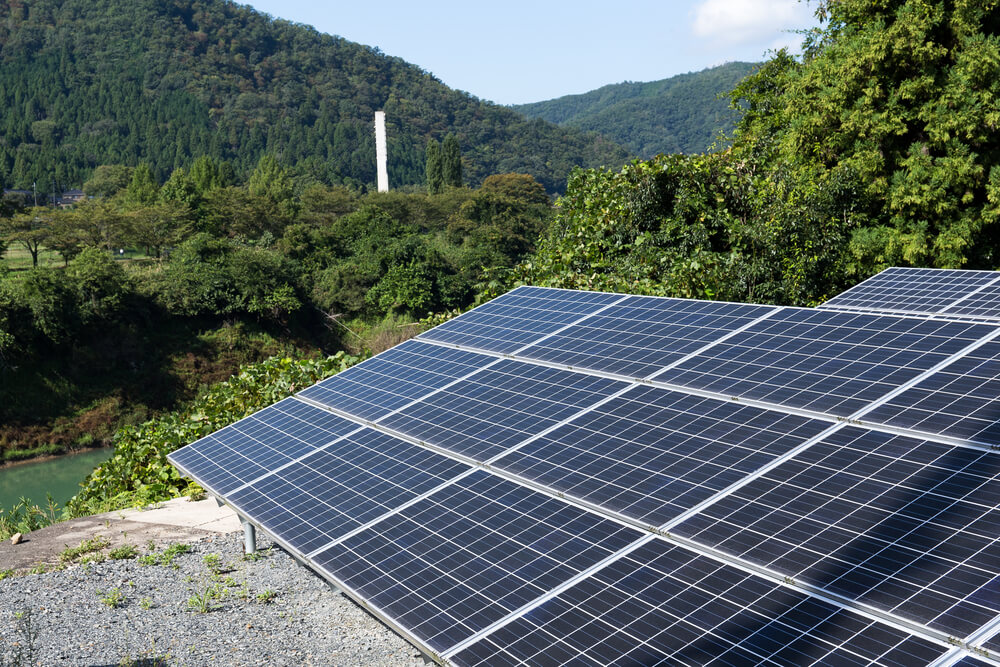Solar energy is a fantastic alternative to traditional power sources, with the potential to reduce electricity bills and carbon footprint.
However, there are two primary types of solar energy systems to consider: off-grid and grid-tied.
Each system has its unique features, advantages, and disadvantages.
This article will explore the differences between off-grid and grid-tied solar energy systems to help you make an informed decision.
Off-Grid Solar Energy Systems
Off-grid solar energy systems, also known as stand-alone systems, are independent of the utility grid.
These systems are designed to provide power to homes or businesses that are not connected to the utility grid.
Off-grid solar energy systems typically consist of solar panels, a charge controller, batteries, and an inverter.
Solar panels capture the sun's energy and convert it into electricity, which is stored in batteries. The charge controller controls the flow of electricity from the solar panels to the batteries.
Simultaneously, the inverter converts the DC power stored in the batteries to AC power that can be used to power appliances and other electrical devices.
Advantages of Off-Grid Solar Energy Systems
One significant advantage of off-grid solar energy systems is their independence from the utility grid.
This means that homes and businesses in remote locations or areas with unreliable grid connections can have access to electricity.
Off-grid solar energy systems are also ideal for those who'd like to live off the grid or reduce their reliance on the utility grid.
Another advantage of off-grid solar energy systems is that they can provide power during power outages or emergencies.
Since off-grid systems are self-sufficient, they can continue to operate even when the utility grid is down.
Disadvantages of Off-Grid Solar Energy Systems
The primary disadvantage of off-grid solar energy systems is their cost. These systems are more expensive than grid-tied systems because they require batteries to store the energy produced by the solar panels.
The batteries are costly and need to be replaced every few years, adding to the overall cost of the system.
Off-grid solar energy systems are also less efficient than grid-tied systems because they need to store excess energy in batteries.
This can result in energy losses and decreased efficiency over time.
Grid-Tied Solar Energy Systems
Grid-tied solar systems are connected to the grid and can supplement or replace the electricity supplied by the utility company.
These systems include solar panels, an inverter, and a net meter. The solar panels generate electricity, which the inverter converts into AC power.
The net meter measures the amount of electricity generated by the solar panels and the amount of electricity consumed by the home or business.
Suppose the solar panels generate more electricity than is needed.
In that case, the excess electricity is fed back into the utility grid, and the homeowner or business owner receives a credit on their electricity bill.
Advantages of Grid-Tied Solar Energy Systems
The primary advantage of grid-tied solar energy systems is their cost-effectiveness.
These systems are less expensive than off-grid systems as they don't require batteries to store excess energy.
Additionally, grid-tied solar energy systems are more efficient because they can use the utility grid as a backup power source.
Another advantage of grid-tied solar energy systems is that they can provide a steady source of income.
If solar panels produce more energy than is needed, the excess electricity can be sold back to the utility company, resulting in a credit on the homeowner's or business owner's electricity bill.
Disadvantages of Grid-Tied Solar Energy Systems
The primary disadvantage of grid-tied solar energy systems is their dependence on the utility grid.
If the utility grid goes down, the solar panels will not produce electricity, and the home or business will be without power.
Which Solar System Is Best For Me?

The decision between a grid-tied or off-grid solar system depends on various factors and ultimately is a personal one. We have created a list you can use to help you make an informed decision.
- Availability of the power grid: If you live in an area without an unavailable power grid, you'll need an off-grid solar system. A grid-tied system may be a better option if the grid is available.
- Cost: An off-grid solar system requires batteries to store excess energy, which adds to the overall cost. In contrast, a grid-tied system only requires solar panels and an inverter.
- Energy needs: An off-grid system is suitable for those who need to power their entire home or business. A grid-tied system is ideal for those who want to supplement their energy needs and save on their electricity bills.
- Environmental impact: A grid-tied system may be more environmentally friendly because excess energy produced can be fed back into the grid, reducing the overall demand for fossil fuels. An off-grid system may require additional energy sources, such as a backup generator, which can increase carbon emissions.
Ultimately, deciding between a grid-tied or off-grid solar system depends on your specific energy needs, budget, and location.
Final Thoughts
Choosing between an off-grid or grid-tied solar energy system ultimately depends on individual needs, preferences, and location.
Off-grid systems offer independence from the utility grid and the ability to provide power in remote areas or during emergencies.
Grid-tied systems on the other hand, are cost-effective and efficient, but their reliance on the utility grid means they may not provide power during power outages.
Whichever option is chosen, switching to solar energy is a wise and environmentally friendly decision that could potentially lead to long-term cost savings and an overall reduction in your carbon footprint.






































































